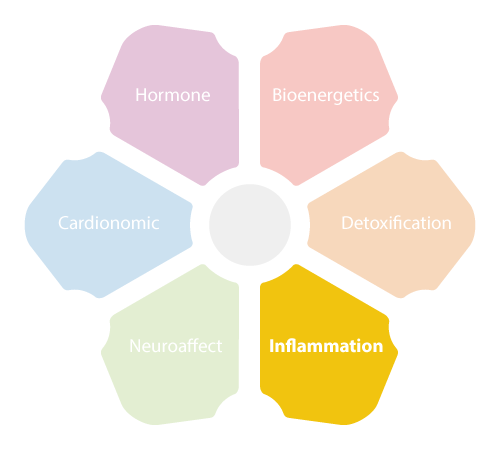 Bloating is a common digestive issue many people deal with. Especially in the modern world, where stress is the norm and too often, we find ourselves reaching for fast food and highly processed foods for a quick fix. Yes, bloating can be a sign of a serious underlying issue, but oftentimes, it can be resolved with the right knowledge and using proper tools. Here are some easy ways to alleviate bloating and discomfort.
Bloating is a common digestive issue many people deal with. Especially in the modern world, where stress is the norm and too often, we find ourselves reaching for fast food and highly processed foods for a quick fix. Yes, bloating can be a sign of a serious underlying issue, but oftentimes, it can be resolved with the right knowledge and using proper tools. Here are some easy ways to alleviate bloating and discomfort.
Eat in a relaxed stress-free environment. Turn off the TV and concentrate on the food in front of you. Not only is this a form of meditation, but it is also the healthiest way for your body to digest food properly. Eat slowly to avoid swallowing too much air which can lead to abdominal distension, more commonly known as bloating.
Studies have shown that eating too fast and eating in front of the TV or another electronic device sends the wrong message to your brain. Instead of the brain telling your body to produce digestive juices, enzymes, and bile, or to stimulate the muscle contractions needed to move food along the digestive tract, your body releases stress hormones. This increases your brain activity, which is needed to deal with the information being taken in from the surrounding environment.
The entire digestive process begins with your eyes when you see food. When the brain processes the information properly, it begins producing enzymes and molecules needed to breakdown and assimilate food in the digestive system. So, make sure you practice mindful eating.
Watch your water intake closely. You’ll want to stay hydrated to avoid bloating, but when you drink is important, too. Drinking too much water with meals will dilute important stomach acids needed to break down food. Avoid drinking while you’re eating or sip your drink instead of gulping it down. But do take in plenty of fluids before and after meals. Staying hydrated will, in fact, help eliminate bloating and keep your tummy flat. Why? Well, if you become dehydrated, your body retains water until the next time it’s needed. This not only causes swelling in the belly but also in many other parts of the body, including the ankles. Moreover, dehydration causes other digestive issues such as constipation and abdominal discomfort.
In a nutshell: Do not overeat and avoid processed foods, sugar, and possibly foods low in fermentable carbs. All of the above can aggravate your digestive system and cause bloating. Food is a common trigger for digestive issues, and poor food choices are the leading cause of many chronic illnesses. Processed and sugary foods are usually full of additives, artificial flavors, colors, preservatives, bulking agents, and artificial sweeteners, which can lead to bacterial imbalances or gut dysbiosis that, in turn, cause bloating and weight gain.
Many people are under the false impression that artificial or alternative sweeteners are better for you when in fact they cause more harm than good. Sorbitol, a popular sugar alternative, is difficult to digest and many studies have even shown that many adults now suffer from sorbitol-induced symptoms such as bloating, diarrhea, and other abdominal issues. Maltitol and fructose are also proven causes of bloating.
Restricting certain foods will improve many digestive issues, particularly if you are sensitive. Another trigger for bloating is fermentable carbs such as broccoli, Brussel sprouts, beans, dried fruit, lentils, and onions. They are not absorbed well by the gut and move into the colon area where they are fermented by bacteria and can cause bloating, excessive gas, and pain.
 Keeping track of what you eat and how you feel can really help pinpoint what is causing your body discomfort. Certain foods? Beverages? Or perhaps, stress or a combination of a few different things? Write down everything you eat and drink so you can begin to correlate food triggers with bloating. A daily diary can help you to eliminate foods from your diet that your body can’t properly digest or tolerate. Keep in mind, over-exercising can also have an impact on digestion. So, make sure to keep track of your training as well.
Keeping track of what you eat and how you feel can really help pinpoint what is causing your body discomfort. Certain foods? Beverages? Or perhaps, stress or a combination of a few different things? Write down everything you eat and drink so you can begin to correlate food triggers with bloating. A daily diary can help you to eliminate foods from your diet that your body can’t properly digest or tolerate. Keep in mind, over-exercising can also have an impact on digestion. So, make sure to keep track of your training as well.
Bottom line: Your body needs certain elements to digest the food you eat. Digestive enzymes ensure optimal absorption of the nutrients entering your stomach. Nutrient absorption is an essential part of your digestive health. Different enzymes are needed to digest different foods along the digestive tract. The enzyme lipase converts fat into fatty acids and cholesterol and the enzyme amylase converts carbs into sugars. If your body is lacking these enzymes, digestion can be impaired leading to bloating and other potential issues.
Our body creates enzymes, but useful digestive enzymes can be also be found in foods such as kiwis, papayas, bananas, avocados, mangoes, and pineapples. In addition, apple cider vinegar, sauerkraut, kimchi, miso, kefir, yogurt, and honey are great sources of enzymes. Making these part of your daily intake can help keep your digestive system ticking along. Lack of proper digestive enzymes is one of the main contributing factors to the symptoms of functional dyspepsia including stomach pain, nausea, bloating, and belching. Common medications used to prevent acid reflux, such as Proton Pump Inhibitors and H2-Blocking agents, prevent digestive enzyme production and acid production. If you’re taking any of these medications, be sure to talk with your primary healthcare physician first before you decide to stop taking them.
If you’re struggling with digestion and think you may be lacking the enzymes necessary for digestion, it’s a good idea to talk to your healthcare provider about taking certain digestive enzyme supplements that could give you the added boost you need. Supplements are available to help break down protein, fats, and fiber, and therefore, lessen your risk of bloating and discomfort. It is recommended to take them three times a day with meals. If you only suffer from occasional bloating caused by certain foods, try taking one before you eat that particular trigger food or avoid that food altogether. Please note that excessive use of enzymes is not ideal, especially if you are weak due to a chronic illness or health condition. Moreover, there are many different types of enzymes. Often, those suffering from Adrenal Fatigue Syndrome (AFS) are unable to tolerate any of these enzymes for a long period of time and they should be alternated, especially if you suffer from poor gut assimilation. Excessive enzymes use can lead to diarrhea and a significant loss of electrolytes.
As you may already be aware, your adrenal glands are running the show inside your body. They produce and release the hormones that control almost everything from your energy levels to your sleep patterns and from your weight, hunger, and fullness to your mood. Thus, they have a huge impact on every cell and organ in your body and all of their associated functions. If your adrenals are now working optimally, many things can start to go wrong, including digestive problems like bloating.
 Adrenal Fatigue Syndrome is a chronic condition that weakens your adrenals as a result of overexposure to stressors of any type. The adrenal glands become fatigued and are no longer able to keep up with your body’s demand for hormones. The NeuroEndoMetabolic (NEM) Stress Response is the body’s automatic way of dealing with stress and relies on six interconnected circuits, which is why stress and adrenal dysfunction can often affect your digestive system.
Adrenal Fatigue Syndrome is a chronic condition that weakens your adrenals as a result of overexposure to stressors of any type. The adrenal glands become fatigued and are no longer able to keep up with your body’s demand for hormones. The NeuroEndoMetabolic (NEM) Stress Response is the body’s automatic way of dealing with stress and relies on six interconnected circuits, which is why stress and adrenal dysfunction can often affect your digestive system.
Cortisol is one of the primary hormones controlled and released by the adrenals and is often disrupted by stress. The amount of cortisol in your body is responsible for controlling inflammation. When the adrenals do not produce enough cortisol, inflammation goes unchecked. This is why many AFS sufferers battle with arthritis, joint pain, and fibromyalgia.
Adrenal fatigue puts the body in a constant state of “fight or flight”. During meal times, this essentially means that instead of your energy being directed towards digestion and enzyme production, it is being used to increase your heart rate and blood pressure, thereby allowing digestive issues to arise, including bloating, burping, acid reflux, diarrhea, and constipation.
Therefore, it may be safe to say that many diseases start in the gut. When the nervous system in a constant state of stress, the digestive system is unable to do its job.
If you think your bloating may be caused by a more complicated issue such as AFS, speak to your healthcare provider about a treatment plan and eating a proper diet. Taking this first step is imperative to your wellbeing since AFS is a serious condition and if left untreated, could lead to debilitating symptoms. Fortunately, with great care, Adrenal Fatigue can be reversed and your adrenals can return to normal.
© Copyright 2019 Michael Lam, M.D. All Rights Reserved.
Bloating is usually caused by digestive issues such as a lack of enzymes or food sensitivities. However, it could also be an underlying symptom of a much more serious condition. Therefore, you should always discuss chronic bloating with your primary healthcare physician.
